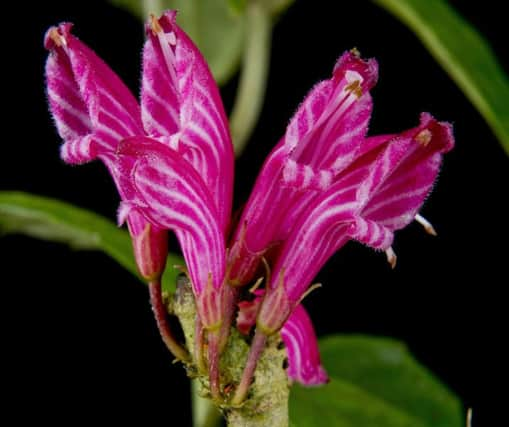‘Miracle berry’ that alters taste buds among top 10 plants of 2019


The Royal Botanic Gardens, Kew is highlighting the top 10 weird and wonderful discoveries from 102 species of plant and eight new fungi found by the institution and its partners in 2019.
The discoveries include species which could help develop new medicines, or become fresh favourites for plant lovers - but many are already at risk of extinction from deforestation, agriculture and energy developments, experts at Kew said.
Advertisement
Hide AdAdvertisement
Hide AdAlso among the top 10 new finds are an orchid found in a waterfall which could be wiped out by a hydroelectric dam, a medicinal fungus growing on bamboo, and an orange bloom named after the wife of the botanist who discovered it.
Dr Martin Cheek, ssenior scientist at the Kew science identification and naming department, said: “Discovering and describing new species is a truly exciting and vital scientific endeavour so we can better protect new species before they become extinct.
“It also helps us to understand their potential uses, and how they might provide the solutions to help us tackle some of the critical challenges facing humanity today.
“This year’s selection represents a range of new-to-science plants and fungi that are unique and characterful, yet threatened by human interventions and at risk of becoming extinct soon; something that makes us both concerned and passionate about their protection.”
Among the highlights of the discoveries made in the world of plants and fungi this year are a new snowdrop (Galanthus bursanus) from north west Turkey was discovered when a Turkish paediatrician uploaded her holiday photos to Facebook, where the plant was spotted by a Ukrainian snowdrop specialist, Dr Dimitri Zubov.
It has already been assessed as “critically endangered” due to threats from illegal collecting, marble quarrying, climate change and expansion of agricultural land.
Another discovery is a new species of “miracle-berry” (Synsepalum chimanimani), discovered in the lowland rainforests of the Chimanimani Mountains on the Mozambique-Zimbabwe border, whose fruits are slightly sweet to taste, but contain a compound called miraculin that blocks taste buds, so when sour foods are eaten, such as limes, they taste sweet.
The new species has been assessed as “endangered” as it is only known in three locations, all of which are under threat from deforestation for agriculture.